Women in Pro Audio: Karen Dhios Women in Pro Audio: Karen Dhios...
In this month’s Women in Pro Audio series, we had the opportunity to speak with Karen Dhios, a multifaceted professional who is making significant contributions to the music and live sound industries. Providing a platform to showcase women like Karen is crucial. It allows their voices and experiences to be heard, challenging the often-dominant narratives and stereotypes within the field. Sharing their journeys can inspire and empower other women, whether they are considering a career in the industry or are already working in it. Showcasing their contributions and successes helps to create a more inclusive and diverse environment, ultimately driving positive change and growth within the pro audio world.
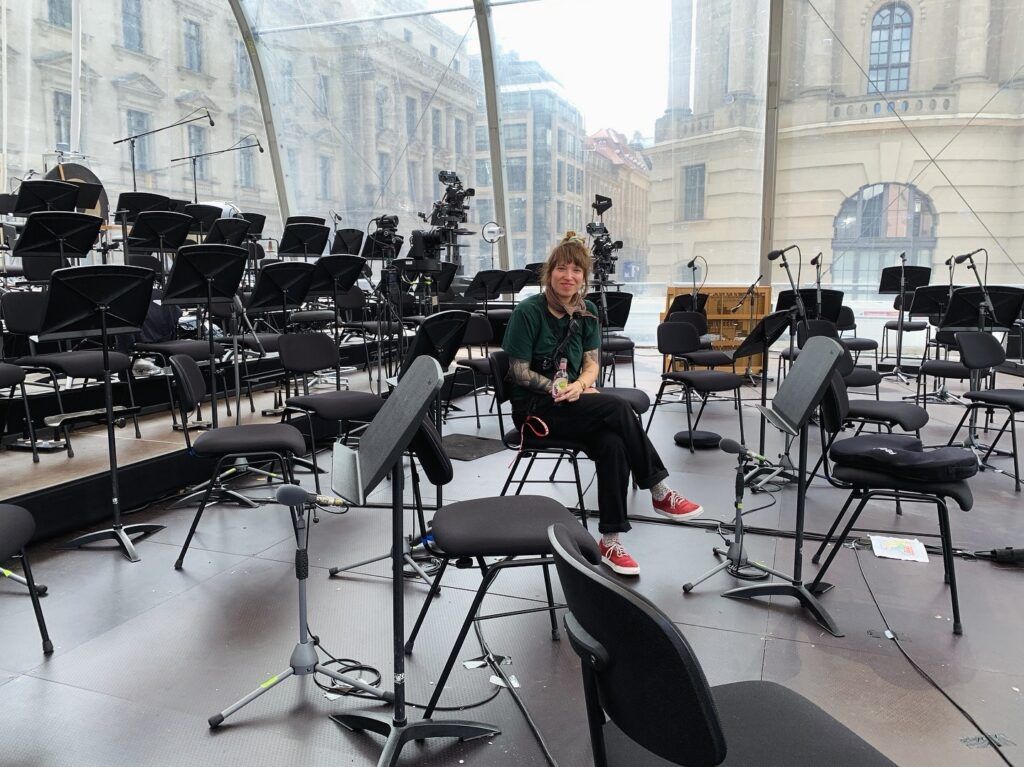
Meet Karen
Karen Dhios is a music producer and studio engineer, leaving her mark on the industry through collaborations with bands like Tocotronic, Ätna, The Red Flags, Lobsterbomb, and Husten. Her work isn’t confined to the studio, though. Karen is also a live sound pro, helping to deliver incredible audio experiences to audiences at festivals such as Nation of Gondwana, Fusion Festival, Whole, and Feel Festival, and ensuring seamless sound for tours and concerts.
Whether it’s the grandeur of music shows at Theater des Westens or the complex logistics of freelance setups for companies at venues such as Waldbühne and the Staatsoper (during its summer season), Karen handles it all. Beyond her production and live sound work, Karen is actively shaping the next generation of talent as an educator for FLINTA* (Female, Lesbian, Intersex, Non-binary, Trans and Agender) individuals with the collective Soundsysters, empowering them with the skills and knowledge to thrive in music and sound.
Early Inspirations and Career Beginnings
Karen Dhios’s journey begins in Buenos Aires, Argentina, but her path has led her across the globe. She shares that she has “been living abroad for 12 years, with 11 of those years spent in Berlin.” When considering her career in audio, the question of whether it was a childhood dream arises. Karen responds, “In a way, yes, it had been.” She vividly recalls her early fascination: “I studied music during my school years and later pursued sound for film. I’ve always been fascinated by creating feelings, contexts, textures, and crafting visual landscapes with sound. These interests sparked from a very young age.”
However, Karen’s youthful aspirations encountered a dose of reality. “At the time,” she explains, “the kind of studies and concepts she dreamed about seemed unattainable and difficult to turn into a sustainable career.” This realization prompted a change in direction. “This led her to shift her focus to recording studio techniques,” she says, a decision that proved pivotal, as it “quickly led to her first job as a studio assistant.”
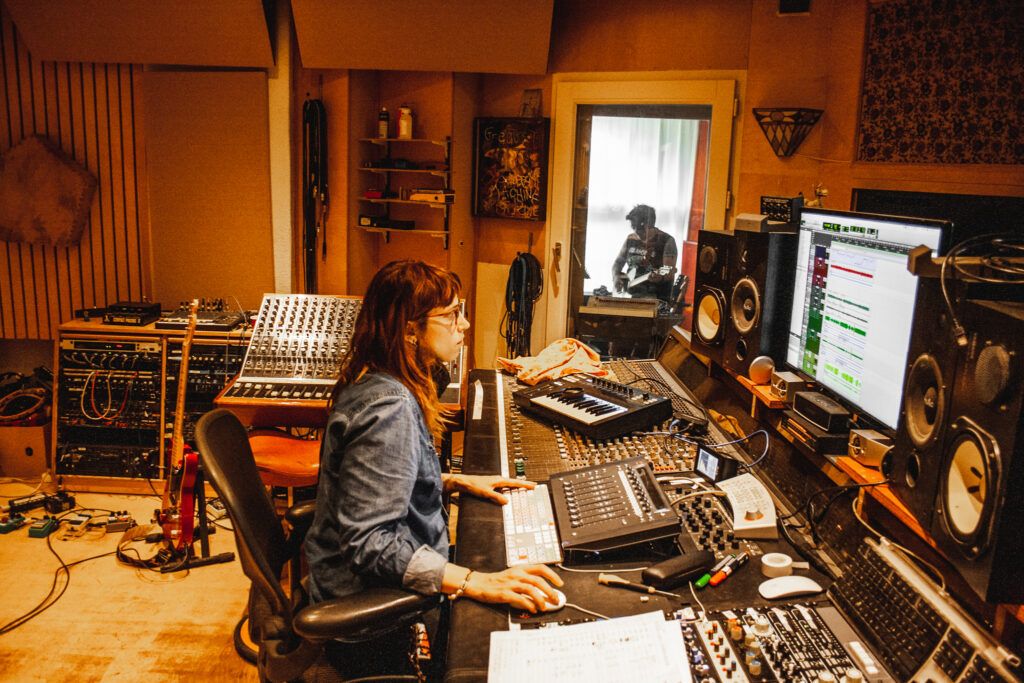
Women in Pro Audio: Overcoming Challenges
Karen’s entry into the pro audio industry began with utilizing available resources and seeking collaborations.
“I started by doing what I could with the resources available to me and by trying to connect with others open to collaboration. A big struggle for me was being in spaces where I didn’t feel comfortable and couldn’t fully express myself. When I was younger, I often found myself working without compensation, hoping it would eventually lead to something better. Unfortunately, there isn’t a single path to success—everyone’s journey is unique, shaped by their circumstances and background.”
She also faced challenges such as cultural isolation, the lack of role models, and often being the only woman in the room.
“One major challenge was the idea that ‘guys can do it better,’ which often means there’s no room for mistakes. This leads to a lot of frustration and intimidation, where I sometimes felt discouraged to even try because I didn’t see anyone like me succeeding in the field. That lack of figures can make it hard to envision a future in the industry, she continues.
“Additionally, I’ve frequently experienced situations where people would address my male colleagues rather than me, even when I was the one in charge. It’s an ongoing issue in the industry. Women often face that our expertise isn’t immediately recognized because of our gender.”
Addressing the Gender Gap and Looking Ahead
Karen reflects on the systemic issues that contribute to the underrepresentation of women in the pro audio and related technical fields. She believes that “the male-dominated work culture in technical fields is still largely hostile and exclusive to those who don’t identify as men. “The ‘bro culture’ in many workplaces creates a barrier for women, who often feel like they don’t belong and are required to work harder to prove their worth,” she says.
While acknowledging that “there’s slow progress,” Karen emphasizes that “there’s still much more work to be done.” A key concern she raises is the lack of representation. “Unfortunately, there are not enough role models for women, particularly in the tech industry. While there are more women in office jobs like booking, label management, and event organizing, the technical side still lacks diversity. This lack of role models makes it more challenging for women to find mentorship and advance in the field,” she points out.
This lack of representation is compounded by a scarcity of resources, including education and mentorship programs that are specifically tailored to women and other underrepresented groups in tech. Karen shares her own experience, illustrating this gap: “In my case, I’ve been actively searching for a Sound System Engineer (either male or female) willing to mentor me for over a year. I’m still looking.”
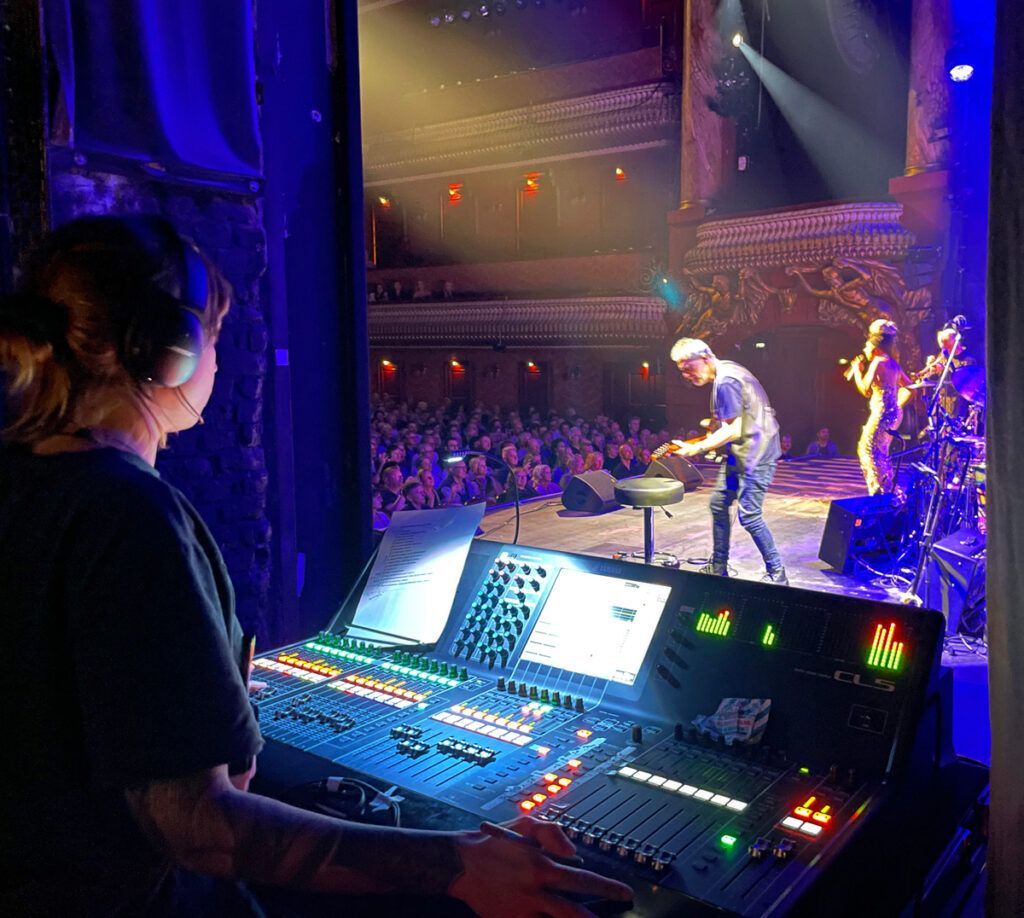
Overcoming the Challenges
Despite these challenges, Karen demonstrates a resilient approach. “When faced with challenges,” she explains, “I don’t see them as obstacles but as steps toward new goals.” She describes the internal work of maintaining self-belief. She says, “The challenge is often about recognizing my own worth in the industry, independent of external influences.”
Karen’s experiences highlight the duality of working in the industry. “Sometimes I meet people who recognize my value, allowing me to enjoy my work and just be myself,” she says. “But at other times, I have to play the game, wear a mask, and fit into the ‘dude-work’ dynamics.”
Reflecting on her favorite professional experiences, Karen recalls the Glastonbury Festival in 2014 as one of the most impressive live events she’s been a part of. “It was truly huge and awe-inspiring!”
Karen also highlights her work on productions at Hansa Studios. “It was a dream come true and an incredible opportunity.”
Showing Up
Karen values her friends and network as her most valuable resources for career growth.
“My friends and network have been my most valuable resources. Showing up and talking to people, building relationships, and learning from others have been instrumental in my growth. But the most valuable thing is being open to helping others. When people reach out to me, I make sure to take the time to give back. That creates a strong sense of community.”
Women in Pro Audio: Industry Changes
If she could change one thing about the industry, Karen would increase access to education and mentorship programs specifically designed for minorities, sponsored by major audio companies, the state, or industry associations. “Providing clear pathways for underrepresented groups to enter and succeed in the industry is crucial,” she stresses.
When considering essential skills for success, Karen offers a perspective that shifts the focus from gender-specific traits to systemic change. “I wouldn’t say women need to focus on different skills than anyone else,” she asserts. Instead, she emphasizes, “The industry needs to change, and focusing on bridging the gender gap is vital. There should be more accessible educational programs and mentorships to help with that.”
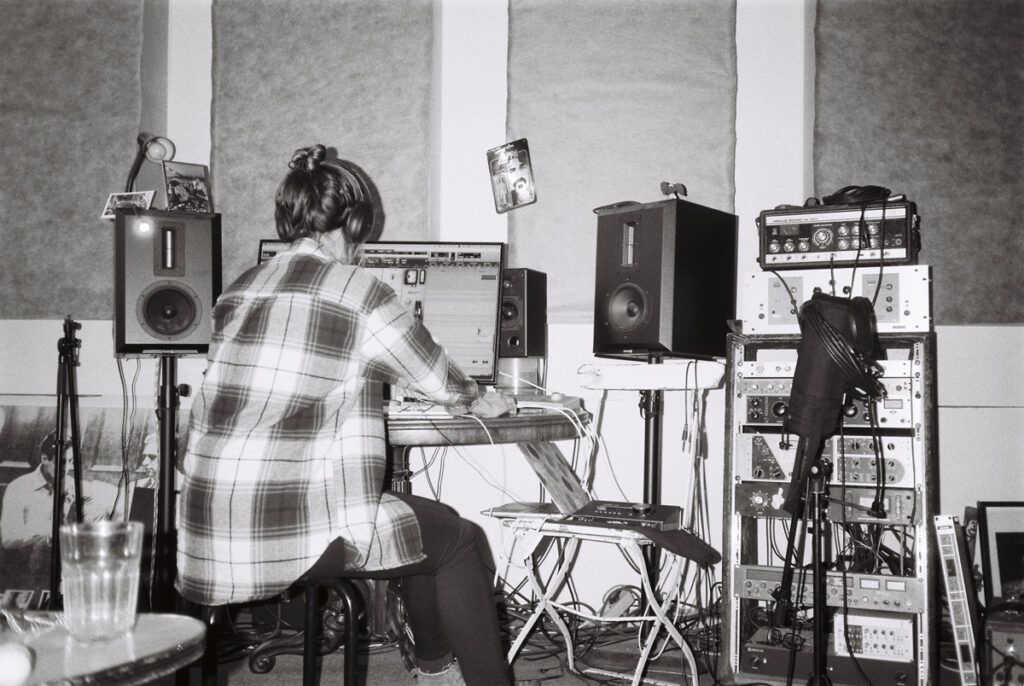
Keep it Rolling and Find Your Passion
Her advice to other women entering the industry, echoing the best advice she ever received, is to “Keep it rolling.” She encourages newcomers to just get started. The path will unfold, and building a strong, selective network is crucial. “Just keep showing up, even when it’s tough. For anyone starting out, I would say—just get started however you can. The path will unfold as you go, and the most important thing is to build an effective network, but be selective about it.”
Reflecting on the rewarding aspects of working in pro audio, Karen shares what she loves most. “I love interacting with artists and being the medium that helps them achieve their final outcome. I really enjoy the teamwork, especially with people I haven’t worked with before. The curiosity of combining our experiences and values is incredibly inspiring. Most of the time, I bring home loads of inspiration from such interactions.”
Future Aspirations of Sustainability
Looking towards the future, Karen expresses a vision that extends beyond gender equity. “Aside from the gender gap, I hope we see a stronger focus on sustainability in live events,” she states. She points out the environmental impact of the industry: “These events require vast amounts of energy for lighting, sound systems, and more.” While acknowledging positive developments, “As we’re already seeing some events transition to renewable energy sources,” she hopes for continued progress. “I hope this trend continues to grow, helping the industry contribute to a more environmentally friendly entertainment sector.”
Follow Karen on Instagram: @karendhios.
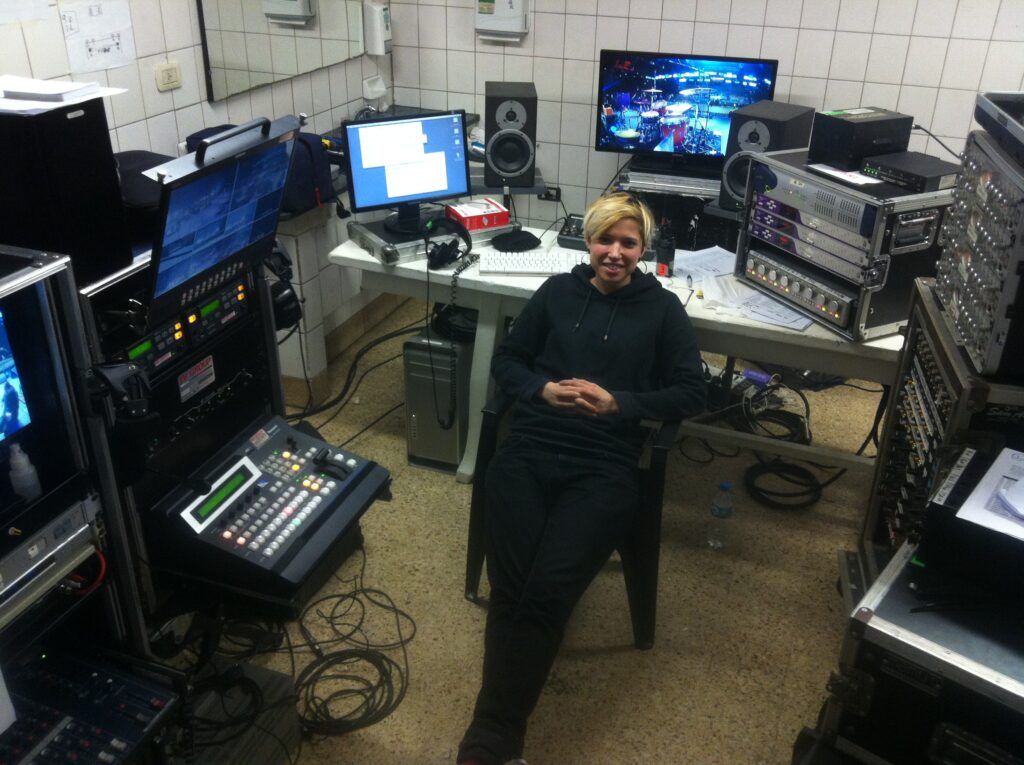
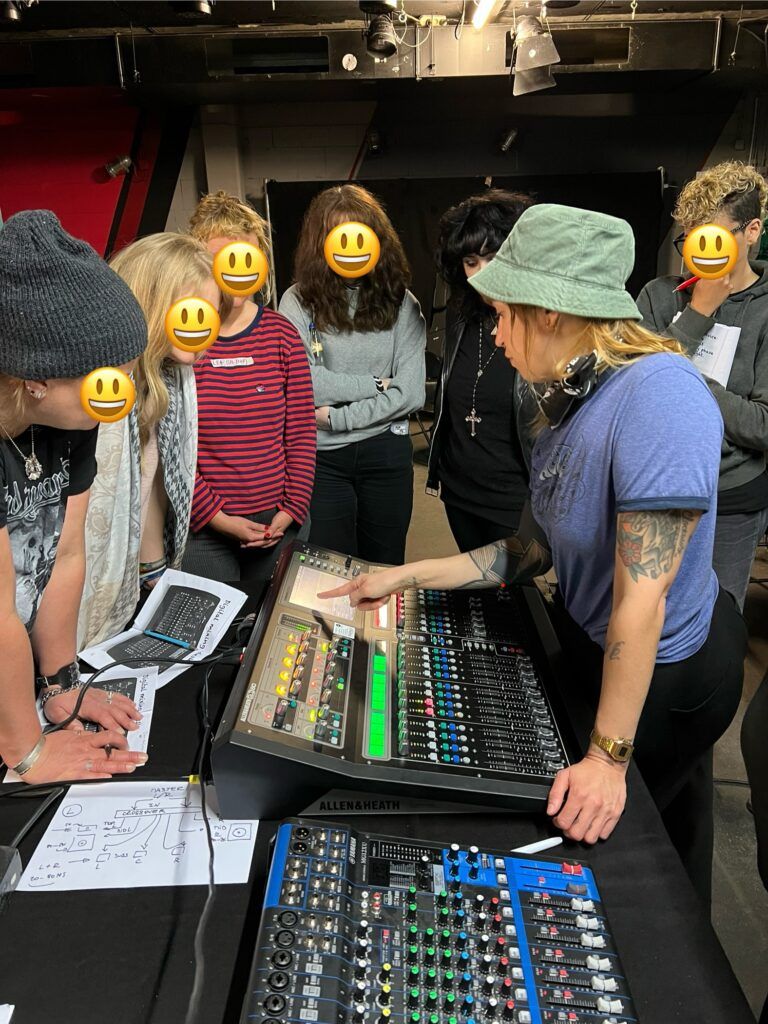
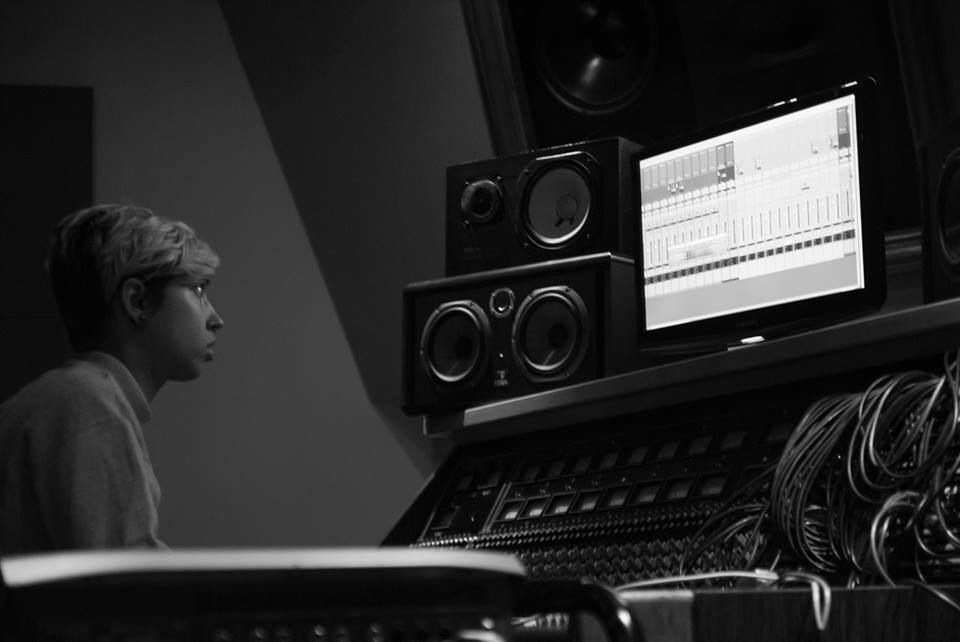
Read last month’s Women in Pro Audio interview here.
Subscribe to Our Newsletter
Get the lastest news and find out about listening events.